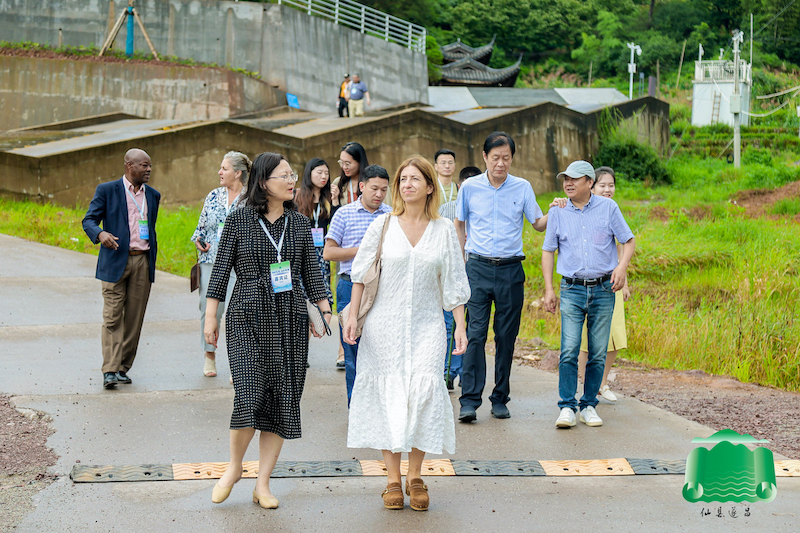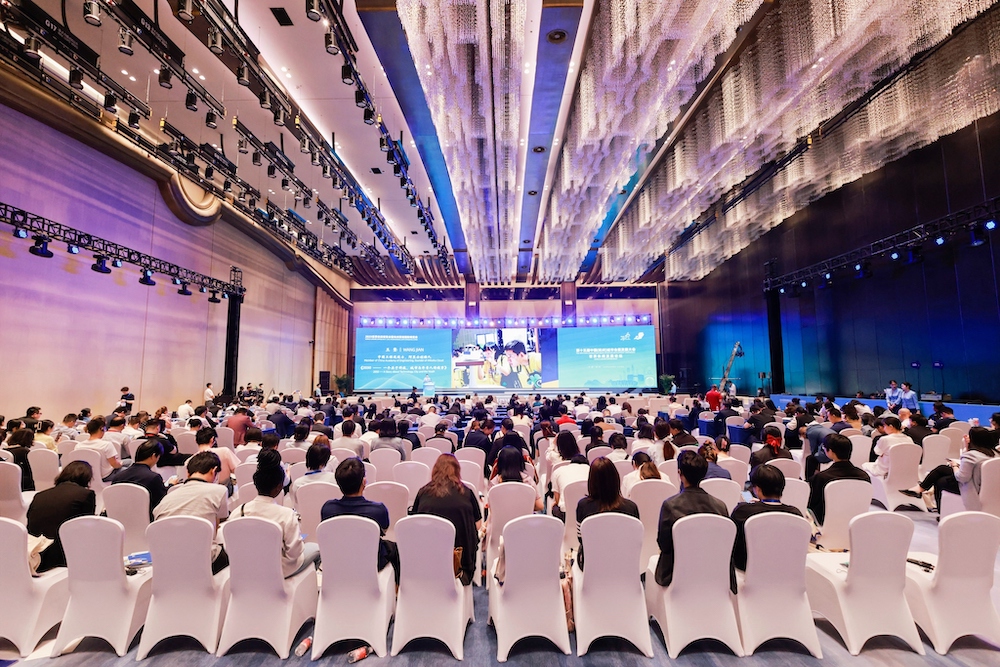Leisure as a national strategy for a better life
International cooperation and future prospects of China's leisure environment

Under the background of building a moderately prosperous society in all aspects, the income level and quality of life of China's residents have significantly improved, while leisure and recreation have become an important part of the Chinese people's daily lives. For example, the survey in the Annual Report on Leisure Development in China 2023-2024 shows that 86.2 per cent of respondents consider leisure time to be very important or important to them, which is an increase of 22 percentage points from 2022 (China Tourism Academy, 2024). Therefore, to meet people's needs for a better life, leisure has become a national strategy and an important way to promote social harmony, stability and improve the quality of life. In addition, with the increasing integration and advancement of emerging technologies such as 5G, big data, cloud computing, and AI in the leisure industry, the ongoing emergence of innovative business models in the leisure sector, the continuous enhancement of policies and institutional frameworks in the leisure field, and the notable improvement in governance capabilities, a diverse pattern of high-quality development in the leisure industry has been established. This development is further supported by the cultural, tourism, sports, and health sectors. As a result, leisure activities in China have evolved from traditional, often passive, activities to diversified, more active, technology-driven activities, and on a global scale (Lin & Dong, 2018). We would like to give a brief overview of the main issues and challenges of the current globalisation of leisure activities in China.
Professor Lijun Jane Zhou is director of the World Leisure Center of Excellence-Zhejiang University, China.
Ms Yao Li is coordinator of the World Leisure Center of Excellence-Zhejiang University, China.
Key Issues and Challenges
The internationalisation of leisure activities in China has always been guided by the higher goal of opening up to the outside world. For example, by leveraging the ‘Belt and Road’ initiative, China has effectively utilised its domestic sports and leisure resources and industrial advantages. It has enhanced collaboration with countries along the route and actively contributed to advancing the globalisation of sports and leisure. This has been achieved through partnerships with various international sports and leisure organisations, as well as through the introduction of international tournaments, conferences, and other initiatives (Chinese Olympic Committee, 2021). In addition, China has also hosted a number of international events, such as the Olympic Games and the Asian Games, to increase opportunities for exchanges with other countries. At the same time, it is not only necessary to ‘bring in’ but also to ‘go out’. China is also actively promoting relevant sports and leisure activities and industries worldwide. This effort is beneficial for spreading Chinese sports and leisure culture, telling a good story of Chinese sports and leisure, and boosting national cultural confidence.
Leisure and recreation have become an important part of the Chinese people's daily lives.
However, there are many challenges and obstacles to the internationalisation of leisure activities in China. Firstly, sports and leisure activities have a strong cultural identity of their own, reflecting certain cultural values as well as historical and cultural origins. Therefore, in the process of ‘going out’, many countries with different histories, cultures, values and levels of economic development will be involved, and the implementation of a new concept will inevitably be accepted or resisted by local cultures and values (Zhou & Song, 2020). Secondly, compared to other countries with mature sports and leisure industries, China has organised fewer international conferences and exchanges in the field of sports and leisure. These events have smaller scales and fewer participants, which restricts the international development of China's sports and leisure industry to some extent. Thirdly, the development of China's leisure industry is still faced with the constraints posed by the inadequacy of supporting facilities for sports and leisure as well as the shortage of relevant exceptional talents. In conclusion, sports and leisure activities in China have both opportunities and challenges in the process of internationalisation.

The Contribution of WLCE-Zhejiang University
Founded in 2018, WLCE-ZJU is the fourth WLCE member of the World Leisure Organization (WLO) globally and the first in Asia. Since its establishment, we have always been committed to actively integrating the advantageous resources of all parties, building a communication platform and contact network for the WLO, WLCE member units, ZJU teachers and students, as well as governmental departments and leisure institutions at all levels, and making significant contributions to the internationalisation of leisure activities. In terms of knowledge transfer, many leading scholars, government officials, and leading entrepreneurs were invited to our sports-themed lectures, which have been viewed by over 1,000 attendees from home and abroad. Meanwhile, Prof. Lijun Jane Zhou, the Center director, has represented us to participate in academic exchange meetings and media interviews at home and abroad many times, such as the World Leisure Congress, the World Leisure Expo, and being a guest on the English Channel of CGTN, contributing China's wisdom on the world stage. In terms of activities related to WLO, WLCE-ZJU successfully organised the International Conference on Sports and Leisure in 2019, 2022, and 2023, providing a high-quality academic exchange and communication platform for individuals from various backgrounds in the sports and leisure field both domestically and internationally. This initiative has effectively promoted international academic exchanges and co-operation in the sports and leisure sector, contributing to the enhancement of China's influence in international sports and leisure research. WLCE-ZJU has also actively participated in the World Leisure Day (WLD) activities. By 2024, with the support of WLCE-ZJU, seven activities in China have been successfully selected as WLD global events, which has significantly increased the visibility and influence of China's series of leisure activities in the global arena. In addition, the Center actively participates in international field studies and work placements organised by the WLO. This enables more Chinese students to gain an in-depth understanding of local cultures, engage in exchanges with young students from around the world, and conduct special seminars on various topics in the field of leisure. In general, WLCE-ZJU, as an important member of WLO, has made significant contributions to the internationalisation of sports and leisure activities in China.
Leisure activities have evolved from traditional, often passive, activities to diversified, more active, technology-driven activities on a global scale.
Wishes for the future
Along the way, WLCE-ZJU has made remarkable achievements in the process of internationalisation. However, based on the current challenges encountered in the internationalisation of leisure activities in China, the Center hopes to be able to rely on the international platform provided by WLO to gain more opportunities for international exchanges and cooperation in the future. For instance, by expanding the number and frequency of international study programmes, more young individuals can access international exchange opportunities, thereby enhancing the development of exceptional sports and leisure talents. Additionally, individuals from diverse backgrounds in the sports and leisure sector, both domestically and internationally, are welcome to participate in the annual International Sports and Leisure Conference hosted by the Center. This participation aims to advance theoretical research and practical advancements in sports and leisure under the high-quality exchange of ideas, ultimately assisting the Center in establishing a renowned academic brand on a global scale.
In conclusion, the trend of globalisation poses both opportunities and challenges for the internationalisation of China's leisure activities. As an important member of the WLO, WLCE-ZJU is looking forward to further strengthening exchanges and co-operation with our international partners through the internationalisation platform of WLO. We firmly believe that with joint efforts, China's leisure activities will continue to go global and contribute Chinese wisdom to the development of the global leisure industry.
Sources
- China Tourism Academy. (2024). China Leisure Development Annual Report 2023-2024.
- Lin, M., & Dong, E. (2018). Place construction and public space: Cantonese opera as leisure in the urban parks of Guangzhou, China. Leisure Studies, 37(2), 117–131. https://doi.org/10.1080/02614367.2017.1341544
- Zhou, D., & Song, B. (2020). ??"????”????????????????. Journal of Guangzhou Sport University, 40(2), 32-34. 10.13830/j.cnki.cn44-1129/g8.2020.02.008.
- "???”?????????????????????????. (2021, May 30). Chinese Olympic Committee. http://olympic.cn/e-marketing/2105/2021/0531/382905.html.






































































